MONSIEUR SPADE – Season One
The famous detective Sam Spade is now 60 and living as an expat in the south of France in 1963.
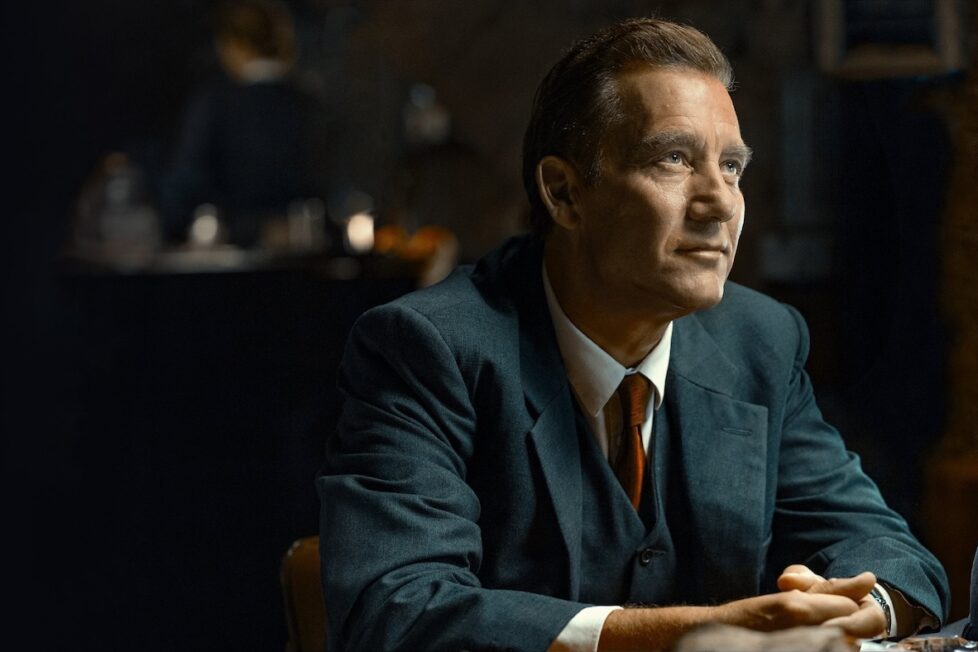
The famous detective Sam Spade is now 60 and living as an expat in the south of France in 1963.


After 80 long years, the wait is over. Sam Spade, Dashiell Hammett’s most famous literary creation, the one that cemented the myth of the hard-boiled detective in both literature and film forever, has returned to life onscreen, in both widescreen and glossy colour.
Monsieur Spade is the creation of writers Scott Frank (The Queen’s Gambit) and Tom Fontana (Homicide: Life on the Street). The six-part series ingeniously draws its chief inspiration from an interlude in The Maltese Falcon novel where Spade tells Brigid O’Shaughnessy about his pursuit of Flitcraft, a staid businessman whose near-death from a falling beam abruptly revealed the emptiness of his life and inspired him to abandon his career and family and start over elsewhere under a new identity. Spade tracked Flitcraft down only to find that his quarry’s new life is a near-exact copy of the old life he left behind—his radical move was ultimately pointless. Flitcraft remained Flitcraft.
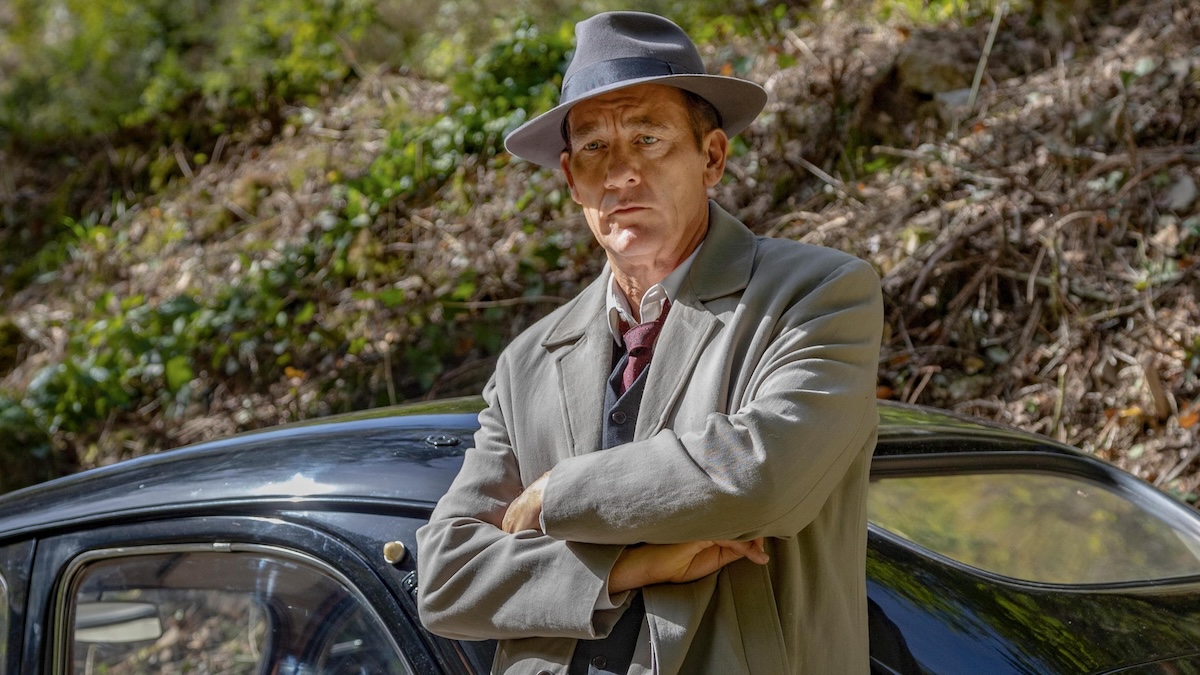
In keeping with this view of the immutable nature of the human psyche, Spade remains Spade in Monsieur Spade. Like Flitcraft, no matter where he goes, there he is, the same man he thought he’d left in San Francisco—flint-eyed, hard-boiled, his eloquent cynicism putting everyone around him on the defensive against his sniper’s wit.
The series opens in the mid-1950s, with Sam Spade (Clive Owen) still a private detective, but older and jowlier. The setting is the South of France, a bucolic world away from the bleakness of urban America. Yet, as fans of Agatha Christie and Midsomer Murders know well, beneath those pastoral surfaces lurk sticky webs of crime and corruption that will eventually compel Spade to pick up his shovel and start unearthing the graveyard of the past.
Spade has been hired to deliver a young girl, Teresa (Ella Ferraud), to her father. Teresa is the daughter of the woman he sent to prison at the end of The Maltese Falcon: Brigid O’Shaughnessy, now recently deceased. Teresa’s father, Philippe Saint-André (Jonathan Zaccaï), is a handsome brute, whom Brigid took up with after she dumped Spade (who, apparently not learning his lesson, got her sprung from prison) and hightailed it to Turkey, where she met her end, leaving Teresa behind.
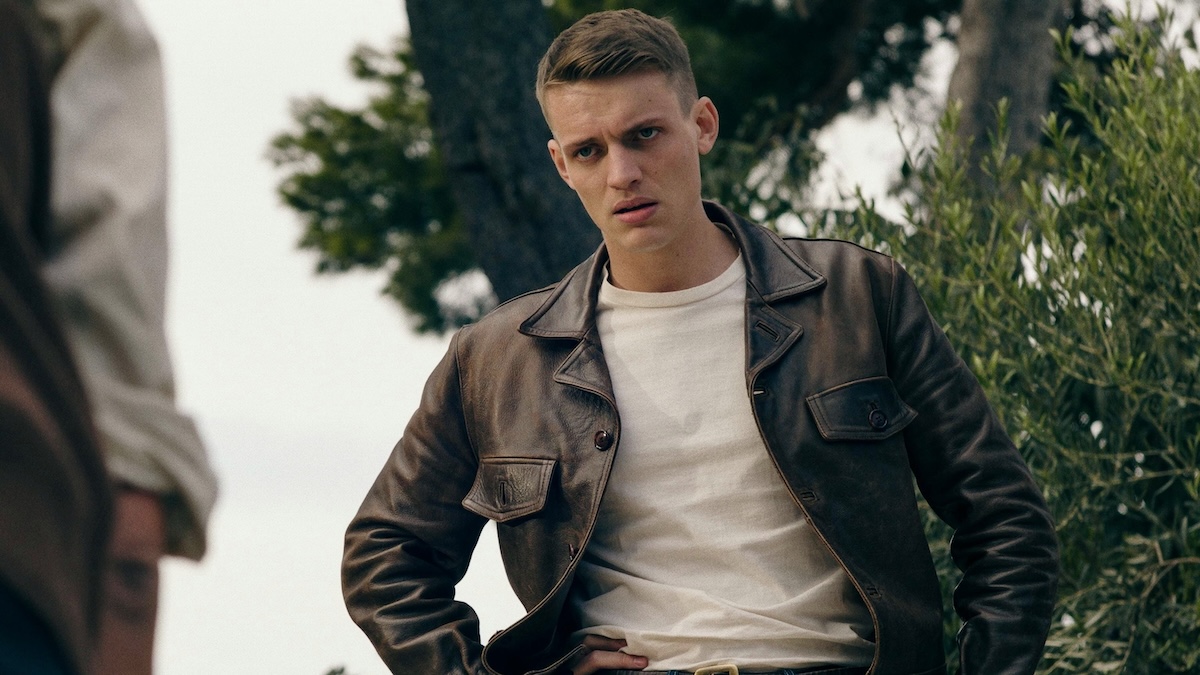
Spade’s attempt to drop Teresa off at Philippe’s house is rebuffed by Philippe’s shotgun-toting mother, Caroline Silhol, who might also have been provoked by Spade’s poor French. Later, they meet Gabrielle (Chiara Mastroianni), a vivacious and wealthy Frenchwoman who, as it happens, is being blackmailed by Philippe. While she enlists Spade’s reluctant help in escaping Philippe’s harassment, the pair slowly fall for each other.
Eight years pass, during which Gabrielle becomes Mrs. Spade. By 1962, she’d died, leaving Spade her entire estate. Though ageing and suffering from emphysema, the fish out of water has learned at least to breathe the French country air. He’s settled well into a louche expatriate’s life just outside the village of Bazouls, speaking competent French while becoming a well-known, if spiky, character, intolerant of fools.
Still a lone wolf unsuited for parenthood, he’s squirrelled Teresa away in a convent whose Mother Superior (Martine Schambacher) is the only one in town who delights in his barbed repartee. Meanwhile, Teresa, now a sullen teenager (Cara Bossom), won’t even look his way when he walks by.
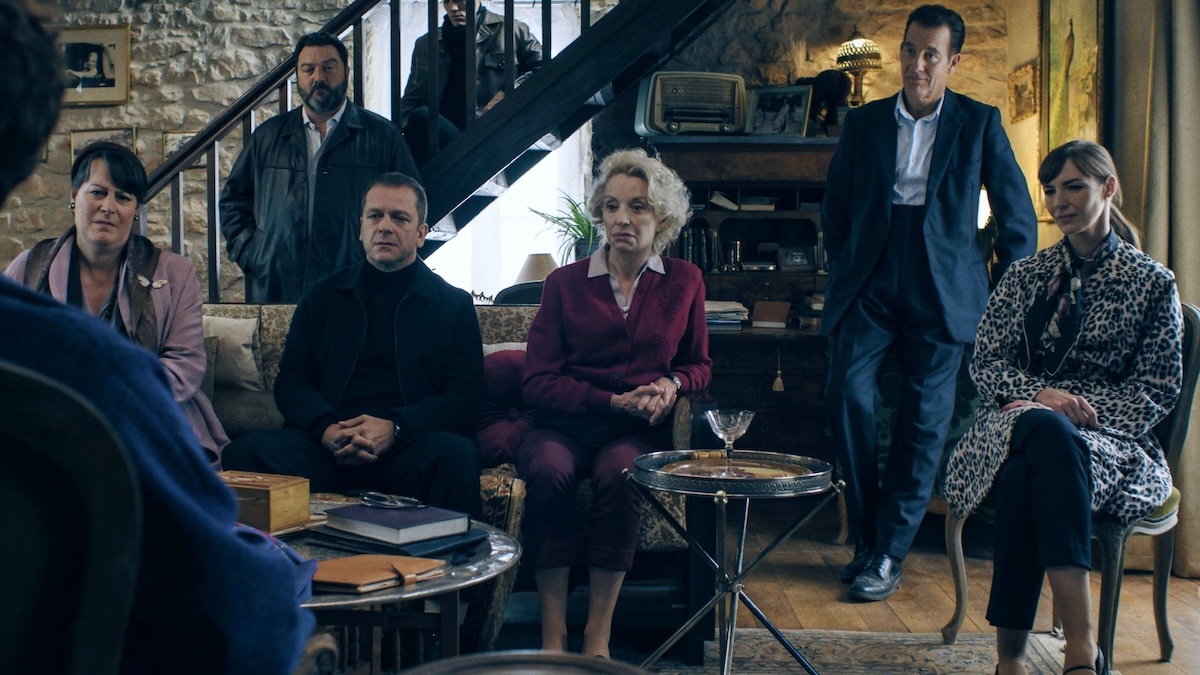
Then rumours arise that the treacherous Philippe has returned to Bazouls after years spent fighting in the French-Algerian Civil War. No one knows why, and everyone is unhappy about it, least of all Spade, who had sent Philippe packing at gunpoint years ago.
Everyone puts great effort into ignoring Philippe’s return until the brutal murder of six nuns at the convent, with Teresa barely escaping, forces their attention. The murders are linked both to Philippe and to Zayd (Ismail Berqouch), an Algerian refugee boy, who’s no mere lead statue but a math prodigy, a treasure avidly pursued by everyone from Islamic revolutionaries through the French OAS to European intelligence agencies. (Some dreams are made of more than lead.) Soon, Spade is drawn into the murderous skullduggery surrounding the boy and the entire village.
If this sounds tortuous, it is. Both The Maltese Falcon novel and John Huston’s 1941 classic film noir, were masterworks of precise, worldly elegance. Dashiell Hammett’s novel, in particular, is so superbly designed and written that it skates right through any scepticism about its fanciful plot. Coming in at around 200 pages, its clear-eyed, diamond-cut style has helped it earn its place on lists of great American novels, both literary and genre.
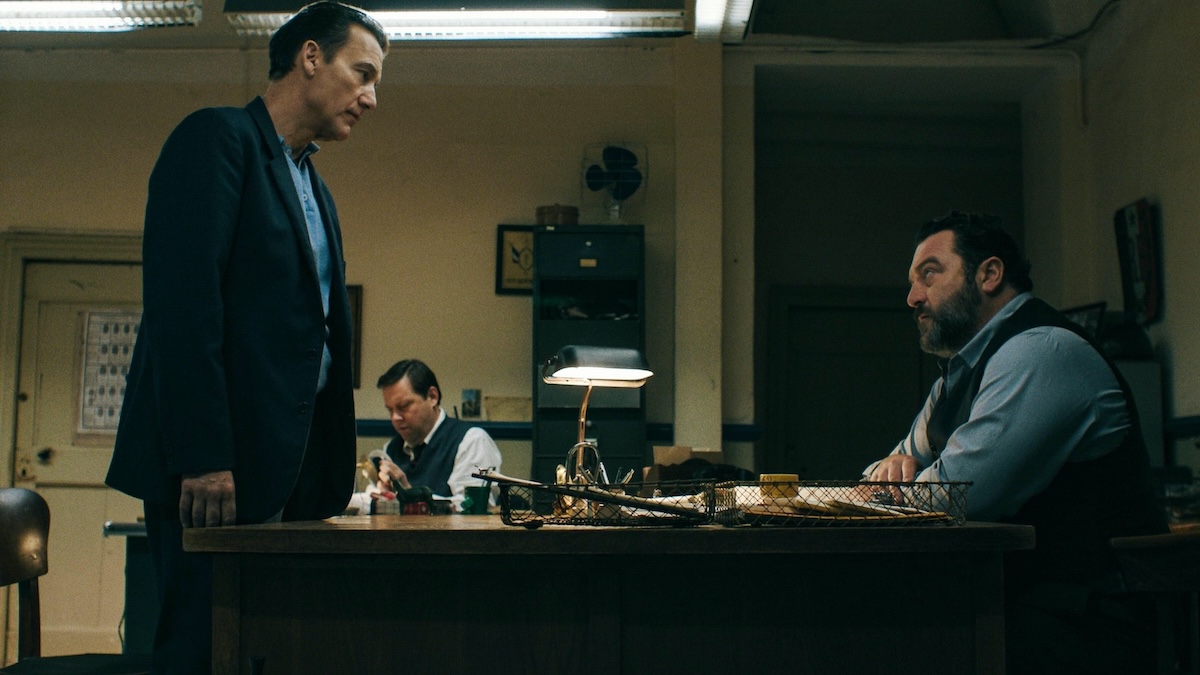
Despite its excessive length, Monsieur Spade is quite enjoyable for most of the journey. The Flitcraft angle remains a swell, albeit familiar, touch of irony. So too is Frank’s and Fontana’s ear for the music of Hammett’s razor-sharp speech patterns and cracking wit. While no one will ever fill Humphrey Bogart’s shoes, Clive Owen hits the right notes, infusing Spade with insolent justice while conveying his beady-eyed impertinence—he even greets unwelcome visitors in the nude. Even as he battles his smoking habit, the cigarette remains a constant companion, dangling beneath his blistering scowl.
As for the rest, that elusive, yet unique, Hammett touch only appears momentarily, mostly during nighttime village scenes. Hammett never loaded his prose with heavy atmospherics, but his eye for the right detail—and no more—sparks the reader’s imagination, drawing us deeper into Hammett’s steely, neon-bleached vision of a world both held together and broken apart by lies.
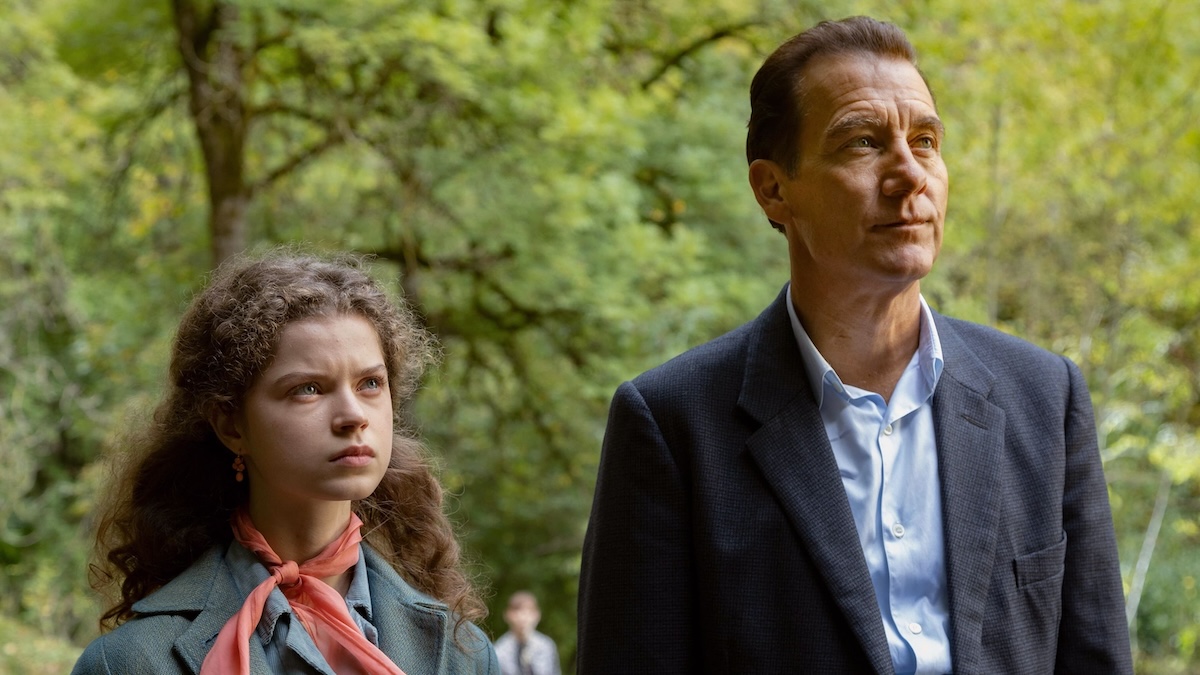
Among the relatively few cinematic attempts to adapt his work, The Maltese Falcon film, The Glass Key (1942), and Miller’s Crossing (1990)—the Coen Brothers’ free-wheeling weave of Red Harvest and The Glass Key—manages to capture the author’s elusive noir sensibility. (The Thin Man films don’t count as they’re bright-eyed comedies. Red Harvest, my personal favourite Hammett novel, was freely adapted for Kurosawa’s Yojimbo (1962) and A Fistful of Dollars (1964). Reports say Frank has bought the rights for the first full film adaptation.)
Monsieur Spade’s plot and story unspool like a ball of yarn in the paws of a kitten. It eventually unravels into a colourful but scattered tangle of plot threads, something I think Hammett would have found a way to clarify. It unfolds at a lurching pace and never seems to build much momentum as it dashes down numerous dead-end alleys.
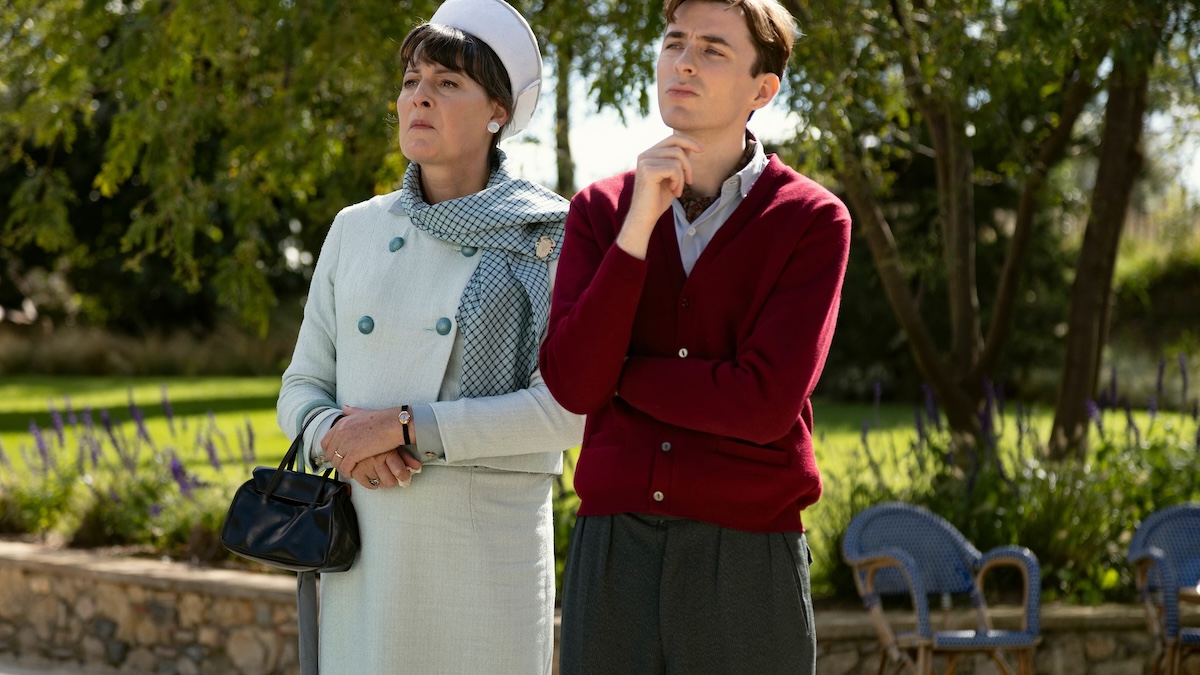
Indeed, it seems a dead end is where everything winds up. The plot collapses into nonsense with a ridiculous deus ex machina, played by Alfre Woodard, parachuted in like Hercule Poirot to gather Spade, the boy, and the rest of the suspects together and force a solution that leaves us scowling even harder than Spade. “Pfui!” as Monsieur Poirot would say.
Frank directs all six episodes and keeps a consistent visual tone most of the way. Cinematographer David Ungaro paints the right variety of light and colour tones that range from the sun-drenched French countryside to the smoky alleyways of the village at night. The supporting cast is also very good, including Jonathan Zaccaï as Philippe and Denis Ménochet as an antagonistic local police chief.
I reserve my highest praise for the radiant Chiara Mastroianni as Gabrielle Spade. The daughter of the legendary Marcello Mastroianni and Catherine Deneuve, she especially gives the final episode the heart it has been seeking. Her warm, heartfelt performance makes Spade less of a Flitcraft than expected. It serves as a reminder that people, even someone like Sam Spade, can change. Not always for the better, but change happens nonetheless.
USA | 2024 | 6 EPISODES | 16:9 HD | COLOUR | ENGLISH • FRENCH

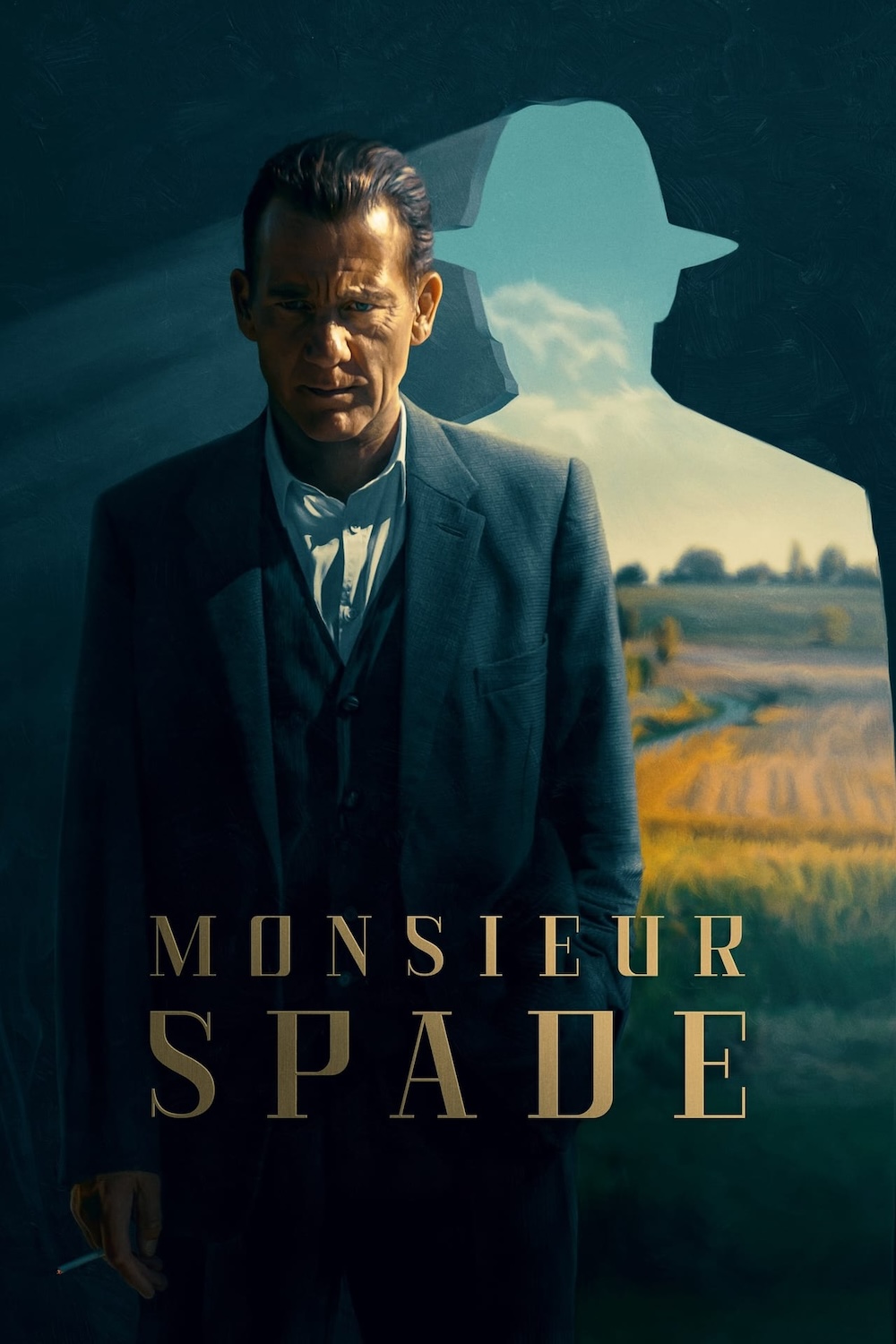
writers: Tom Fontana & Scott Frank (based on the character Spam Spade, created by Dashiell Hammett).
director: Scott Frank.
starring: Clive Owen, Cara Bossom, Denis Ménochet, Louise Bourgoin, Chiara Mastroianni, Stanley Weber, Matthew Beard, Jonathan Zaccaï, Rebecca Root, Dean Winters & Alfre Woodard.
